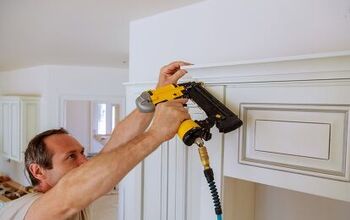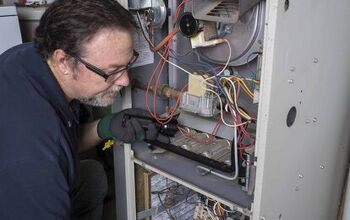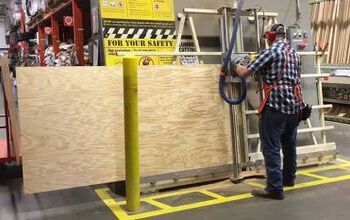Selling Your House? Stay Honest To Seal The Deal

A little white lie never hurt anyone, right? Maybe you fib and tell your bestie you love their latest haircut to spare their feelings. No big deal, but when it comes to selling your house, even a tiny lie could cost you a lot.
Be truthful when selling your home, disclose all known problems, and don't downplay issues or exaggerate positives. Attempting to make your house appear better by omitting information or using vague language makes buyers question your authenticity. If they catch you in a small fib, they're likely to assume you're not being truthful in other areas. Stay honest and let buyers form their own opinions.
As tempting as it may be to tell a few little white lies to make your home appear better, it’s not a good idea. Not only is misleading buyers unethical, but it also leads to people becoming suspicious. If you get a reputation for not being completely forthright about your property, buyers start doubting everything.
6 Fibs Home Sellers Tell (Without Thinking About It)
The important thing to keep in mind is that most of the ways sellers twist the truth aren’t likely intentional. Sometimes, the lie is so small it doesn’t even seem like a lie at all.
People understandably want to show their house as positively as possible. Therefore, sometimes they leave out a tiny sliver of information, or they exaggerate a few features. However, overall, honesty is the best policy when you’re selling your house, and it’s the law, too.
Sellers must disclose any known issues with their property. A seller’s disclosure informs buyers of any problems sellers should know about, like termite damage, mold, roof leaks, etc.
Typically, the disclosure is a simple form with a series of yes and no questions that sellers answer. Depending on the question and response, the seller may then need to elaborate in writing to provide more details.
Even with seller disclosure requirements, some people still try to fudge the truth a bit. Here are some common ways sellers skirt the truth when they’re selling their homes.
1. Making The Neighborhood Seem Perfect
Maybe you live in a neighborhood that seems like it was plucked straight out of a 1950’s sitcom. Everyone gets along, the homes are always meticulously maintained, and nobody’s dog barks after 8 pm. Great, who wouldn’t want to tell buyers all about a neighborhood like that?
But unless you honestly live in a modern-day Mayberry, don’t exaggerate the neighborhood to potential buyers. Also, if you’ve had any ongoing issues with neighbors, don’t gloss over them.
For example, your neighbor is always playing loud music after 10 pm. Or the lady across the street lets her dog use your yard as a bathroom but never picks up the poop. Although you don’t necessarily need to go into details about these incidents, don’t make it seem like everything is perfect.
2. Exaggerating House Features
When buyers walk through your home, they’ll investigate, open cabinets and drawers, and test lights and faucets. They’ll be curious about how much storage is in the home and how much natural light comes into the kitchen. Let buyers make up their own minds.
If you exaggerate various aspects of the property, it could backfire. For example, if you start going on and on about how much storage there is, certain buyers may not agree. What might seem like a lot of space to you might be barely enough for someone else.
Stay objective in your real estate listing and when you talk about the property with buyers. Your agent should do the same. If you exaggerate your listing, you run the risk of buyers being disappointed when they see the home in person.
This goes for photographs too. Keep your listing photos accurate and don’t try to give buyers a skewed impression of your property. Make your home stand out, but do it honestly.
3. Covering Up Issues Instead Of Making Necessary Repairs
You don’t have to repair every little thing before you sell your home, but there are some things you should strongly consider fixing when selling your house. Things like water leaks, mold, pest infestations, and mechanical failures should be top priority when listing your house.
But if for any reason you can’t fix the problem, don’t try to hide it. For example, if you discover termites, don’t cover up the damage and say everything’s fine. There’s a big difference between replacing a piece of termite-ridden paneling and just patching and painting it.
Unless you repair something completely and correctly, don’t tell buyers everything is as good as new. Let them know what steps you’ve taken and what still needs to be done.
Plus, the odds are good that most buyers will order a home inspection. Therefore, things will come out in the open eventually. Better to be upfront and honest from the beginning. Otherwise, buyers could pull out of the deal simply because they don’t like the idea that you lied.
4. Saying You Have Permits When You Don’t
If you didn’t get permits for certain repairs or renovations, or you’re unsure, let buyers know. If you try to gloss over this issue, it’s going to come out later. If buyers discover after the sale that certain work isn’t permitted, and you said it was, you’ll end up with bigger problems on your hands.
5. Failing To Mention An Unfavorable History
Did something sordid happen in your home at some point in its past? Was there a murder? Was it used for some sort of illicit operation? Are there rumors that it’s haunted? Depending on what state you live in, you may have to disclose any unpleasantries about your home’s history.
However, even if your state doesn’t require you to do so, it’s a show of good faith to let buyers know. They’re likely to find out anyway, and when they do, if you didn’t mention anything, you’ll come across as sneaky.
6. Giving The Impression Things Come With The House
Anything you plan to leave in the house when it sells should be clearly stated in the contract. Don’t make any suggestions that certain elements will remain in the home if you don’t plan to leave them there.
For example, if you intend to leave the stove and refrigerator, excellent. Tell buyers you’re happy to do so and note it in the contract. However, if you don’t plan to include them in the deal, don’t say things like, “The stove is brand new, and it works great.”
Also, don’t lead buyers to believe appliances you intend to sell with the property are in excellent working order if they aren’t. Be honest about their condition, even if it’s little quirks like a loose knob or an occasional humming sound.
Keep It Real When Selling Your House; Never Tell A Lie
Saying something that isn’t true isn’t the only way to lie to someone. You can also lie by omission or by exaggerating the truth. No type of lie is okay when you’re selling your home. If you’re the least bit untruthful, buyers will catch on, and it could ultimately cost you the deal.
It’s best to keep things on the up and up and be truthful from the beginning. Use accurate real estate photos and descriptions in your listing, and make sure to be thorough when filling out the seller’s disclosure. Let buyers know about any issues with the property (past and present), and be honest about what repairs, if any, you’ve done.
Of course, you want to make your home stand out, that’s a must when you’re trying to sell. But do it properly, by staying honest and letting buyers make up their own minds.
Overall, when you tell the truth, it’s a win-win for everyone. Buyers get an accurate picture of the home, and you don’t need to worry about anything coming back to haunt you.
Related Guides:

Stacy Randall is a wife, mother, and freelance writer from NOLA that has always had a love for DIY projects, home organization, and making spaces beautiful. Together with her husband, she has been spending the last several years lovingly renovating her grandparent's former home, making it their own and learning a lot about life along the way.
More by Stacy Randall











![10 Best Scroll Saws for 2022 [Ultimate Reviews & Buyer's Guide]](https://cdn-fastly.upgradedhome.com/media/2023/07/31/9070684/10-best-scroll-saws-for-2022-ultimate-reviews-buyer-s-guide.jpg?size=350x220)










![12 Washing Machine Brands to Avoid [with Recall Data]](https://cdn-fastly.upgradedhome.com/media/2023/07/31/9075781/12-washing-machine-brands-to-avoid-with-recall-data.jpg?size=350x220)




